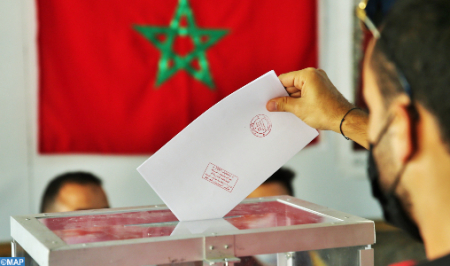2021 Elections: High Turnout in Southern Provinces, Tangible Proof of Attachment to Morocco – Mauritanian Political Parties
The massive participation of citizens in Morocco’s southern provinces in the elections held on September 8 is a tangible proof of their integration and attachment to their motherland; Morocco, said Mauritanian political leaders and experts. “This is, undoubtedly, a referendum that confirms the Moroccanness of the Sahara,” said Mohamed Mahmoud Ould Tolba, president of the Mauritanian Popular Front and vice-president of the Coalition Vivre Ensemble (CVE), in a statement to MAP. This participation “confirms the full integration of these regions into Morocco,” the official said, welcoming the “record” voter turnout they registered (66.94% in Laayoune-Sakia El Hamra, 63.76% in Guelmim-Oued Noun, and 58.30% in Dakhla-Oued Eddahab). “This demonstrates their obvious desire to belong to the Moroccans of the South,” he stressed, adding that these high turnouts also confirm the legitimacy of the elected officials’ representation in these provinces. On the national level, the voter turnout of 50.35% “reflects perfectly the maturity of democratic practice in Morocco,” he said, welcoming Morocco’s success in organizing three elections on the same day, for the first time in its history. Moroccan authorities, thanks to this rate that is “the highest” since 2011, have met the challenge in an international and regional context characterized by uncertainty. In the same regard, Ahmed Chbih from the Republican Front for Unity and Democracy (FRUD) stressed that the high voter turnout in the southern provinces establishes evidence of the Sahrawis’ strong involvement in the consolidation of democracy in their country, as well as their full integration in the Kingdom. This turnout also confirms that Morocco is “a great democracy,” said Mr. Chbih, adding that the Kingdom has undergone a number of “notable changes since the enthronement of HM King Mohammed VI.” “We feel the presence of a real life within [Morocco’s] political parties,” he said, stressing that “the Moroccan model should inspire other neighboring and brotherly countries.” As for Cheikhany Ould Cheikh, political analyst, he believes that the voter turnout recorded in Morocco’s southern regions is “the most striking evidence of their patriotic feeling.” The results of these elections shed light on Morocco’s advanced regionalization, as a project that “responds perfectly to people’s aspirations.”

